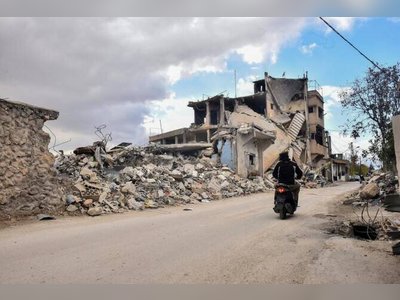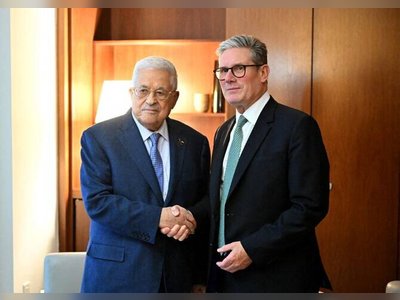Israel’s Strike in Qatar: Right Target, Legitimate Location, Wrong Timing, Wrong Method
It was a legitimate response delivered too late, with too little impact, and in a way that risks diplomatic fallout.
Israel’s recent strike in Doha targeting senior Hamas operatives cannot be classified as a violation of international law—provided it was aimed at individuals directly orchestrating terrorist activity against Israel from within Qatari territory and under Qatari protection.
Such an action is legally and morally justified when those targeted are commanders of an internationally recognized terrorist organization operating from a third country with impunity.
It falls firmly within Israel’s right to self-defense. Anytime, anywhere. The massacre of Israeli citizens on October 7—carried out by Hamas operatives with planning and direction originating in and financed by Qatar—provided ample justification for such a response many months ago.
A prompt, decisive strike in the immediate aftermath of that atrocity would have carried moral clarity, strategic purpose, and greater deterrent effect.
However, the operation raises three critical concerns. This was an action that delivered too little, too late.
Based on available reports, the senior Hamas leadership appears to have emerged unscathed. First, the timing.
This action should have come immediately after the October 7 massacre, when Hamas terrorists crossed into Israel and carried out atrocities in Israeli communities.
A decisive response then would have sent an unmistakable message and might have disrupted Hamas leadership’s ability to maneuver diplomatically and militarily.
Delaying such a strike until now significantly weakens its strategic and moral impact. Second, the effectiveness.
In a scenario involving such a high-value target in an exceptionally sensitive location, the operation should have been conducted with surgical precision and definitive impact: swift, final, and unambiguous.
That did not happen.
Despite the scale of the operation, early reports suggest that the senior Hamas leadership escaped unharmed.
Third, the method of execution. Such an operation—especially in a diplomatically delicate host nation like Qatar, which is a key U.S. ally and regional powerbroker—should have been carried out quietly, with precision, stealth, and professionalism by Mossad’s elite units, not via a conspicuous aerial strike.
A dramatic air campaign, even if operationally sound, risks triggering regional backlash, diplomatic consequences, and reputational damage for both Israel and the United States. It must be said clearly: the principle of the strike was not only justified, it was essential—and better late than never.
But the timing, scale, and visibility of the operation reflect a missed opportunity, not a strategic masterstroke. Those who question the legitimacy of the strike misunderstand the reality of modern asymmetric warfare.
Hamas is not a state but a transnational terrorist organization operating from sanctuaries headquartered in Qatar.
When such actors use foreign territory as a shield, they—and the territory that welcomes and hosts them—cannot claim immunity. They are not only part of the problem but the primary facilitators of all Hamas terror attacks on Israel.
The responsibility lies with both the perpetrators and the host country that knowingly harbors, shields, and finances them. In contrast, those who critique the timing, targeting, and execution of the operation are raising valid concerns. Israel’s enemies must be held accountable—but the methods must also serve the strategic goal, not just the emotional one.
In the complex calculus of war, justice must be swift, precise, and effective. This strike, while morally and legally grounded, failed to deliver the full measure of any of those.
The message must also be directed at the United States:
No nation has the right to oppose the actions of terror victims against those who finance, enable, and grant shelter and immunity to international terrorists targeting Israel, Europe or any other nation.
This cannot be excused under the guise of self-interested calculations that ignore the murderous campaigns Qatar funds and directs from its territory—campaigns tied, directly or indirectly, to Qatar’s aggressive drive to erode Western Christian influence across Europe.
Qatar is a dear friend, a rich friend — yet a world-class criminal friend.
Its embrace of Western nations, and the corruption with which it buys politicians to surrender their countries to Islamization, is a poison the West must either confront or accept as its own suicide.
Yet Israel—like any nation that wishes to survive—has both the right and the duty to defend itself and eliminate those who work relentlessly to destroy it.
This is not about being pro-Israel or anti-Palestinian. It is about choosing humanity over terror—everywhere, always, at any cost.










